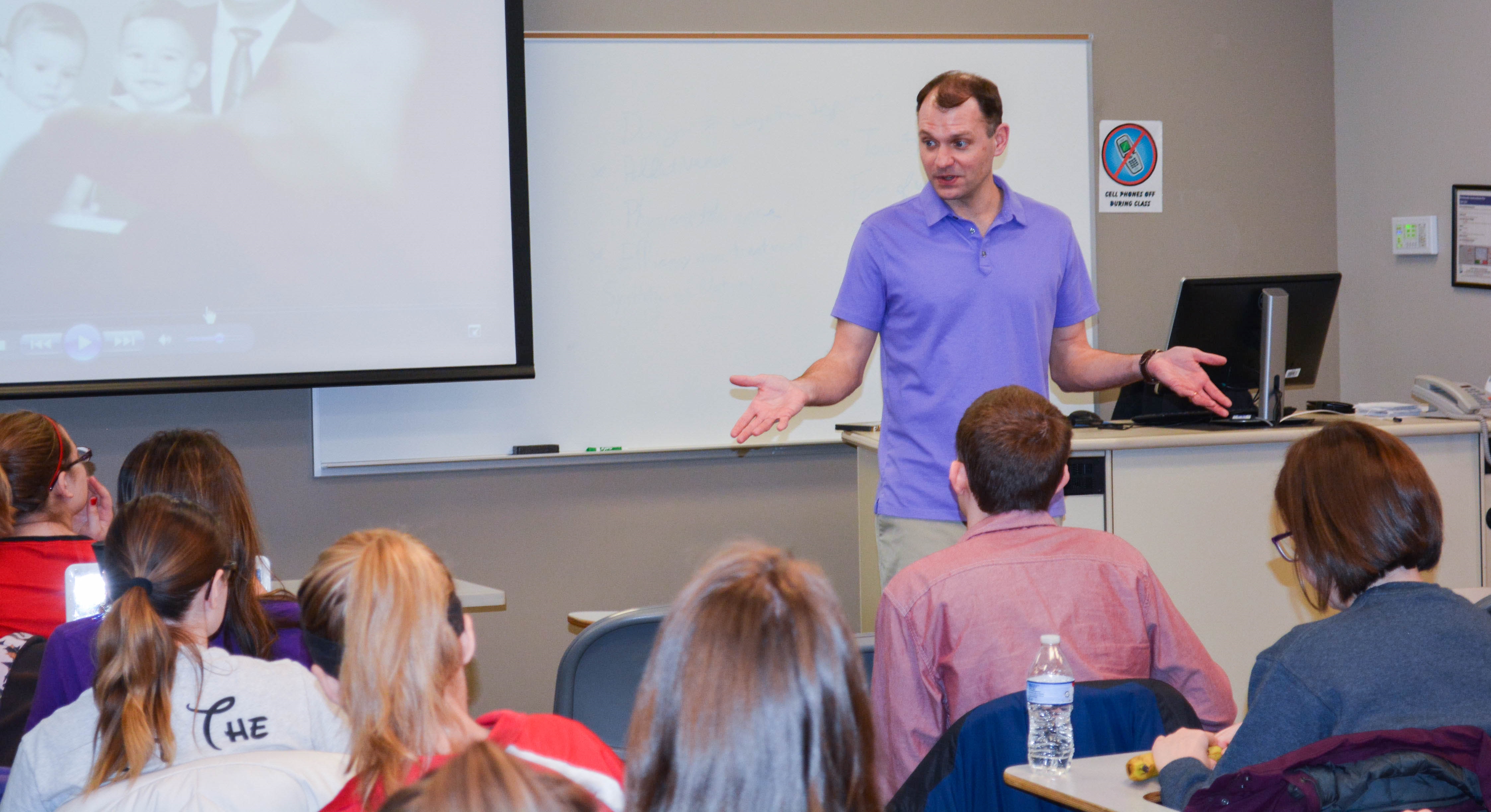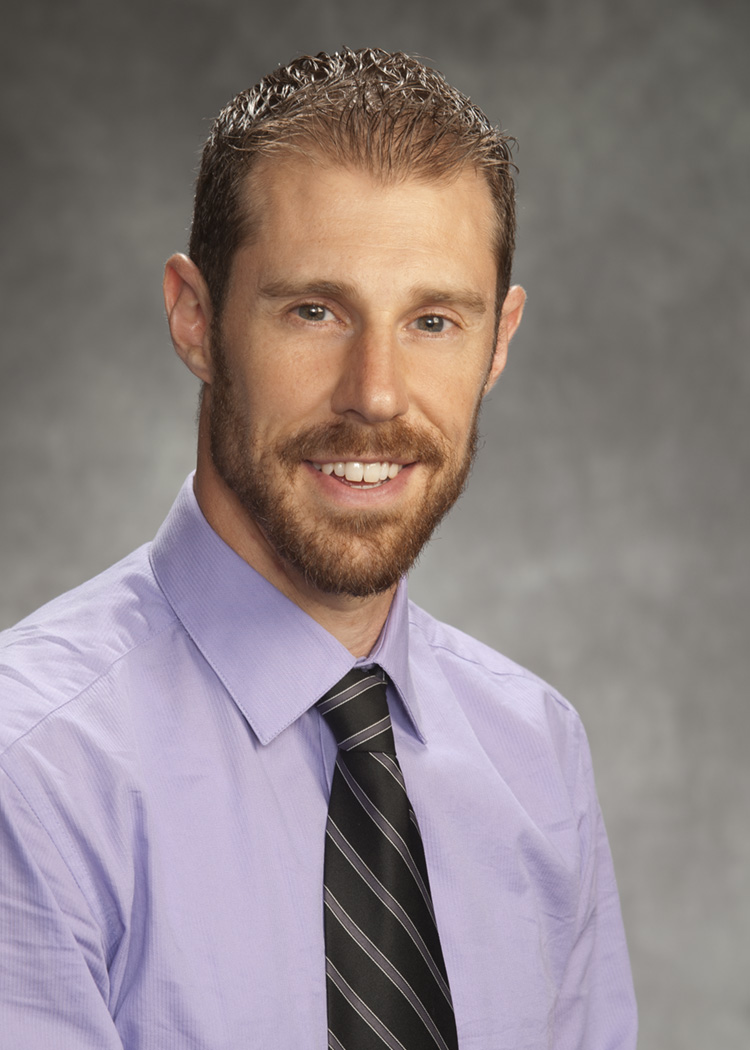Bachelor of Science in Human Development and Family Science
The Bachelor of Science degree in human development and family science from the University of Mount Union provides students with the skills to obtain a career in a variety of fields. The major requirements and curriculum, which emphasize a strong focus on theory, research, and application, prepare students for meaningful and successful human development and family science careers in a variety of related fields as well as graduate school.
The interdisciplinary human development and family science major allows students to delve deeper within issues of relationships, family, community, society and culture while critically examining the dynamic transaction of human life and the environment. It combines elements from the psychology and sociology areas with a focus on human development, family development, and society/culture.
Human Development and Family Science Major Quick Facts
The human development and family science degree requires 44 credits specific to the major. Students will also need to complete a total of 32 credits required to fulfill the Integrative Core requirements. Students interested in pursuing people-focused careers working directly with individuals, children and families are encouraged to pursue a human development and family science degree.
Mount Union’s human development and family science degree incorporates a variety of hands-on learning experiences including Live-Action-Role-Plays typically only found at the graduate level, research opportunities and internships.
-
Curriculum
CurriculumWith a broad-base of knowledge that crisscrosses the fields of psychology and sociology, a major in human development and family science at the University of Mount Union will prepare you for advanced study in graduate and professional schools in several different areas including:
- Human Development
- Clinical Counseling
- Marriage and Family Therapy
The human development and family science major provides many opportunities for experiential learning through internships and field placements and a robust undergraduate research laboratory setup across multiple faculty members.
Departmental Mission
The mission of the Department of Psychology, Neuroscience, and Human Development is to develop and maintain an academic curriculum and co-curricular activities that help students acquire a broad base of knowledge in the field, acquire the intellectual and communication skills necessary to participate in these fields as scientists and practitioners, and develop characteristics that encourage personal fulfillment, meaningful work and responsible citizenship.
Departmental Goals
Knowledge Base- The Department of Psychology, Neuroscience, and Human Development provides courses, programs, and experiences that foster the acquisition of fundamental knowledge and comprehension of the major concepts, theoretical perspectives, historical trends, and empirical findings to discuss how psychological principles apply to behavioral problems. Students completing foundation courses should demonstrate breadth of their knowledge and application of psychological ideas to simple problems; students completing a baccalaureate degree should show depth in their knowledge and application of psychological concepts and frameworks to problems of greater complexity.
Scientific Inquiry and Critical Thinking- The Department of Psychology, Neuroscience, and Human Development provides courses, programs, and experiences that enable students to develop the skills in this domain that involve the development of scientific reasoning and problem solving, including effective research methods. Students completing foundation-level courses should learn basic skills and concepts in interpreting behavior, studying research, and applying research design principles to drawing conclusions about psychological phenomena; students completing a baccalaureate degree should focus on theory use as well as designing and executing research plans.
Ethical and Social Responsibility in a Diverse World- The Department of Psychology, Neuroscience, and Human Development provides courses, programs, and experiences that enable students to develop the skills in this domain including the development of ethically and socially responsible behaviors for professional and personal settings in a landscape that involves increasing diversity. Students completing foundation-level courses should become familiar with the formal regulations that govern professional ethics in psychology and begin to embrace the values that will contribute to positive outcomes in work settings and in building a society responsive to multicultural and global concerns. Students completing a baccalaureate degree should have more direct opportunities to demonstrate adherence to professional values that will help them optimize their contributions and work effectively, even with those who do not share their heritage and traditions. This learning goal also promotes the adoption of personal and professional values that can strengthen community relationships and contributions.
Communication- The Department of Psychology, Neuroscience, and Human Development provides courses, programs, and experiences that foster the acquisition of competence in writing and in oral and interpersonal communication skills. Students completing foundation-level courses should write a cogent scientific argument, present information using a scientific approach, engage in discussion of psychological concepts, explain the ideas of others, and express their own ideas with clarity. Students completing a baccalaureate degree should produce a research study or other psychological project, explain scientific results, and present information to a professional audience. They should also develop flexible interpersonal approaches that optimize information exchange and relationship development.
Professional Development- The Department of Psychology, Neuroscience, and Human Development provides courses, programs, and experiences that emphasize an application of psychology-specific content and skills, effective self-reflection, project-management skills, teamwork skills, and career preparation. Foundation-level outcomes concentrate on the development of work habits and ethics to succeed in academic settings. The skills in this goal at the baccalaureate level refer to abilities that sharpen student readiness for postbaccalaureate employment, graduate school, or professional school. These skills can be developed and refined both in traditional academic settings and in extracurricular involvement. In addition, career professionals can be enlisted to support occupational planning and pursuit.
-
Hands-On Opportunities
Experiential LearningStudents who choose to major in human development and family science at the University of Mount Union have ample opportunities to get the valuable hands-on, experiential learning opportunities outside of the classroom that are critical to a successful career after graduation such as live-action role-play, research, and internship opportunities.
Live-Action-Role-Plays are incorporated into the human development and family science major requirements and curriculum, specifically in the therapy-based courses. Typically found only at the graduate level, this unique feature of the human development and family science degree program at Mount Union allows students to participate in live-action role plays that require the student to apply the theory-based techniques they are learning in the classroom inside a working counseling and social lab.
Research allows you to analyze and investigate areas that you’re most interested in. Human development and family science major students at Mount Union have the following research opportunities:
- Independent research
- Research with faculty or student peers
- Honors projects
- Research-based courses
By their senior year, students pursuing a human development and family science degree will have developed and implemented a research study from the ground-up, including developing an initial hypothesis, recruiting a sample, collecting data, analyzing data and giving a formal presentation to the department. This Senior Culminating Experience is typically related to the student’s area of interest and is typically done in concert with their peers in a small working group.
Student Organizations
Mount Union’s Psychology Club, a student-led organization on campus, is a fun and interesting way for students and faculty to interact outside of the classroom. By getting involved in the Psychology Club, you’ll have the opportunity to hear presentations from professionals in the field, discuss graduate school and jobs as well as attend social activities. The club also sponsors informational trips to local facilities and service agencies. It is open to all students regardless of major and its purpose is to encourage and promote the study of psychological science while stimulating interest in professional aspects of the field.
Psi Chi, the international honor society in psychology, was founded in 1929 with the mission to “encourage, stimulate and maintain excellence in scholarship of the individual members in all fields, particularly in psychology, and to advance the science of psychology.” Mount Union started a Psi Chi campus chapter on December 10, 2000, and each year nearly 30 students join. Although activities are varied, many are designed to stimulate professional growth by creating a fellowship with other psychology professionals across the globe. The chapter provides opportunities to promote individual research involvement and to reward achievement of professional leadership qualities.








